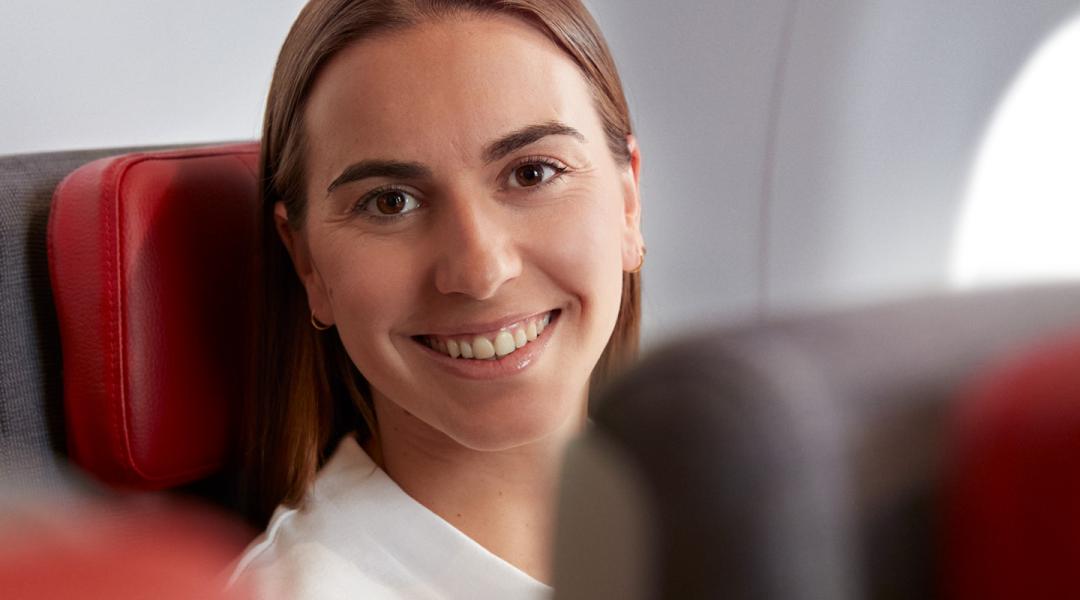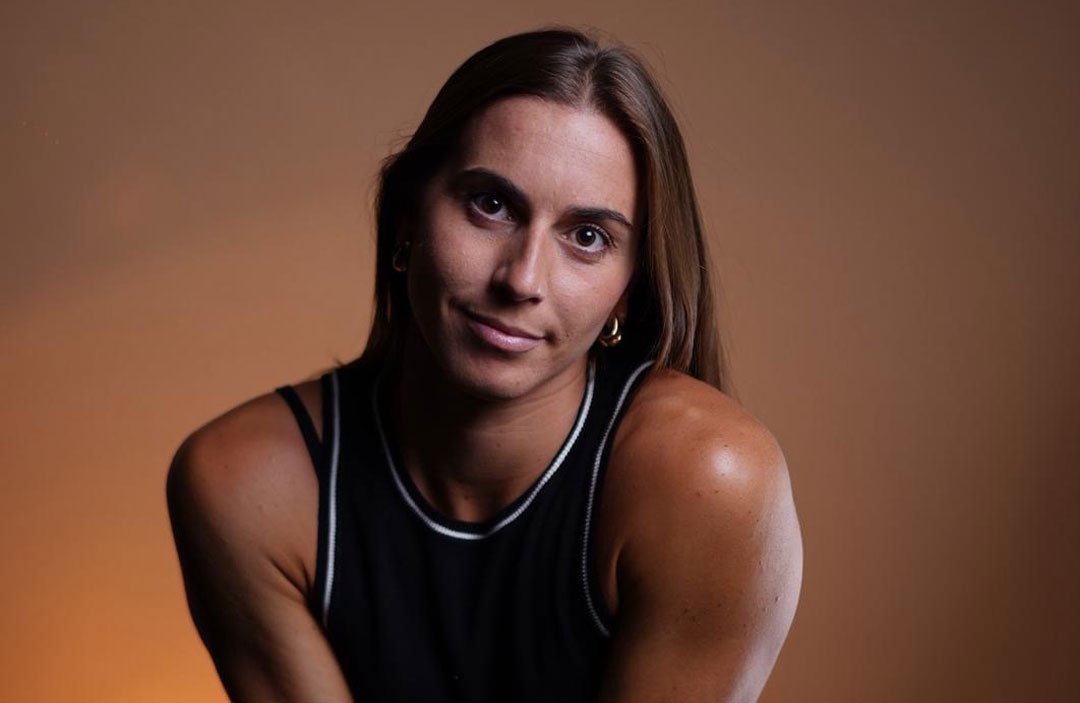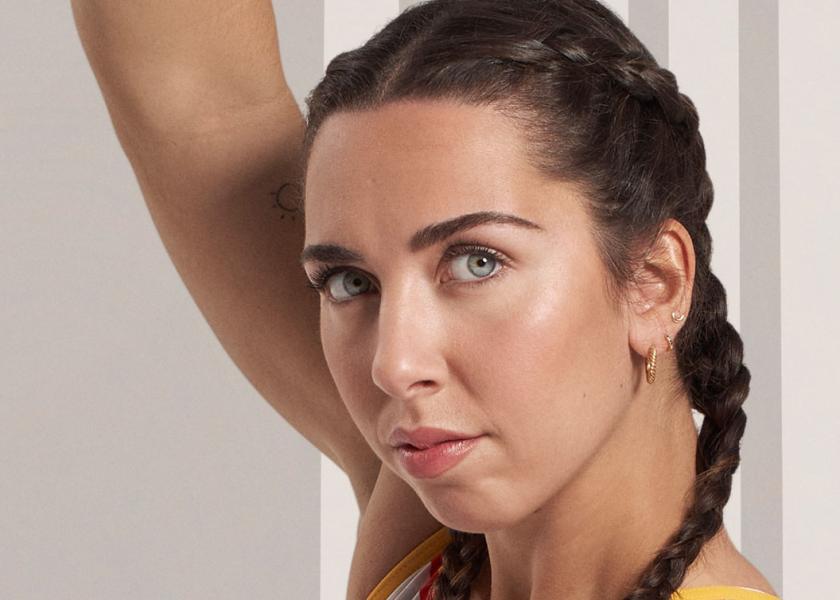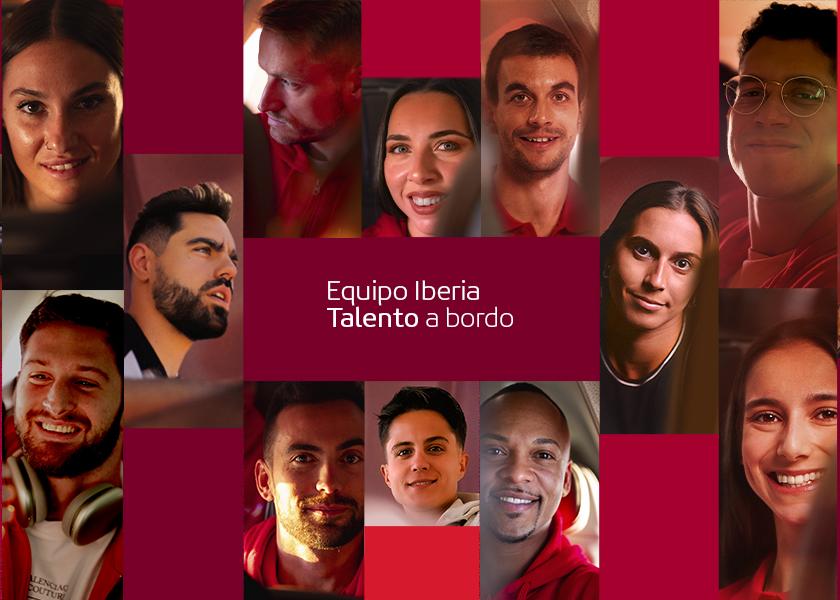Bea Ortiz
Golden girl

Water polo player Bea Ortiz, one of the additions to the Iberia Talento a bordo Team, does not get tired of winning and dreams of repeating her success during the Paris Games almost a year ago at the upcoming World Championships in Singapore (11th-23rd July). The injuries of role models like Laura Ester, Pili Peña, Maica García or Judith Forca cannot slow down a national team that has spent more than a decade at the top while flaunting unwaivable values.
Bea Ortiz (Rubí, 1995) is a natural competitor, and she longs to win the only gold medal she’s missing, that of the World Championships, but she’s not losing sleep over it: “I want to win, but for me, it’s not extra pressure. After all the progress that we’ve made, all our wins with the national team, if I retired without that medal, I wouldn’t consider it a failure.” After an equally spectacular and demanding 2024, which granted her the Olympic gold medal (Paris), the European silver medal (Eindhoven) and the World bronze medal (Doha), as well as becoming the European champion with Club Natació Sabadell and being chosen as the best player in the world by World Aquatics, this water polo player does not set herself long-term goals. She prefers to focus on the daily grind and enjoy her sport, which, she admits, she has detested at certain times. As a recent addition to the Iberia Talento a bordo Team, we couldn’t miss this opportunity to ask her about her view of talent: “Talent is a combination of hard work, learning and sacrifice, without omitting that innate aspect, and to develop it you need to fall down many times. Moreover, I believe that it is reinforced more by defeats than by victories.”
Tell me about how water polo came into your life.
My parents never played water polo, but they were always connected to Club Natació Rubí. When we were little, they signed my brothers and I up for swimming lessons, but I hated the water (laughs). They cancelled my lessons because I was unbearable; I cried every day, so they signed me up for gymnastics. My brothers carried on with swimming, so that swimming pool was still part of my life and one day I met my best friend, Amanda, there. She told me to try again and since then, I haven’t got out of the water yet.
So, you’ve ended up being part of a generation of water polo players who have won practically everything. What do you think you stand out for and what has helped you reach the top?
I was lucky to join the national team at a very young age alongside a generation that came second in London. The other day, I was looking at photos of the first time I was with the national team —in the summer of 2012— and I remember watching the older players closely, they had always been my idols. Preparing those Games with them and later seeing them win silver on TV was incredible. As we younger players joined the team, we were taught values like hard work, commitment and sacrifice, which are key to staying at the top.
Your next goal is the World Championships, which the national team is attending with several fresh faces. Nevertheless, are your expectations to continue fighting for the top? Do you believe the younger players are talented?
Our mindset is always to give our all, otherwise it wouldn’t be worth spending the whole summer training. Our goal is to climb onto the podium and, if possible, to win the gold medal, but we’re in the middle of generational changes which require more work than usual. We need to understand each other better, but the general dynamic is good. Our younger players still need to learn the ropes a bit, but they are incredibly talented and eager to play.
“As we younger players joined the team, we were taught values like hard work, commitment and sacrifice”
After a spectacular 2024 both individually and collectively, where do you find the motivation and eagerness to keep competing at the highest level?
The key is to keep working and to set yourself goals, but not long-term this time. Now, I’m extremely focused on the World Championships and then will come the season with my new club [Ferencvaros]. Over time, I’ve realized that you can be a champion and be down in the dumps in personal and sporting matters. So, another of my goals is to enjoy water polo. At times, I have loathed it, and I want to retire loving it.
On the 10th of August, it’ll be one year since the gold medal you won in Paris. How do you feel today when you remember it?
The truth is that I still get goosebumps. I get emotional when I think about that time, about all the feelings we had and all the beautiful things we experienced. It was incredible. I fulfilled the dream of any athlete. If, ten years ago, someone would have told me that I would win a gold medal at the Olympics, I honestly wouldn’t have believed them.

Bea Ortiz was named the best water polo player in the world in 2024. © Pau Venteo
At the end of the Games, when the score was 3-2, you scored three consecutive goals in two minutes. Did you feel unstoppable?
Above all, I felt supported by the team. I’d been playing well for a few matches, and I was feeling confident. Both the staff and my teammates gave me the courage to keep throwing the ball again and again. When I think about that 10th of August, I don’t think about what I did, I think about what we did as a team, which was incredible.
You’ve said before that, throughout that summer, you’d look at your teammates and felt like you’d win. What could you see in their faces?
Before getting to the Paris Games, we did a group activity in pairs in Sierra Nevada. We all talked to each other, and each of us had to tell the person in front of them their best and worst traits. It was one of the toughest things we’ve done as a team, but also one of the most beautiful. When we left that room, we were all crying because no one likes to hear certain things, but at the same time we were happy because we had managed to come together in a way that hadn’t happened for a very long time. After that exercise, we trained with that mix of emotions and, at the end, I don’t know how to explain it, but I understood that we were going to win because we’d already done the hardest part.
“Your body always moves forward, but your mind cannot. There are mental limitations and when your mind says enough, you have to take notice”
We’ve discussed the highlights of 2024, but there were also some shadows. A few months before the Games you had a mental block, even recoiling from the pool. Who helped you overcome it?
My parents, my brothers, my partner and my best friend. Some teammates like Mati Ortiz and Laura Ester also helped me through. Then, I obviously lent on a therapist. If I recall correctly, she wrote to me in mid-May and was with me until the Games. Without all these people, I wouldn’t have made it, but I think I also put in the work on a personal level. Sometimes it’s important to know yourself well, and I think I did a decent job that year.
Occasionally, you’ve said that the body endures more than the mind. For athletes, is taking care of the mind just as important as the body?
I’m turning 30 in a few days, and this time has taught me that, indeed, the most important thing is your head. However exhausted your body is, no matter the struggle, it always responds and moves forward, but your mind cannot. There are mental limitations and when your mind says enough, you have to take notice.
You’ve never turned your back on your studies. Are you thinking about your life after water polo?
Luckily, water polo keeps us afloat, but it won’t bring home the bacon our entire lives. Since an early age, my parents taught me the importance of studying. First, I studied a double degree in Advertising and PR and Audiovisual Communication, and then I did a master’s in Film Directing and Production. I know it’s a tough world, but I’ve always loved films, and I’d love to work in this industry. I’m aware that it’s going to be hard because I have no experience and the clock keeps ticking. For this reason, last year I started a master’s in Communication Management, which can help me find my way.


